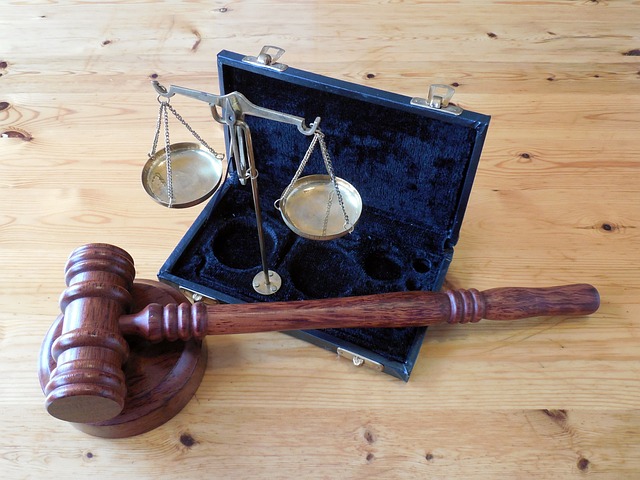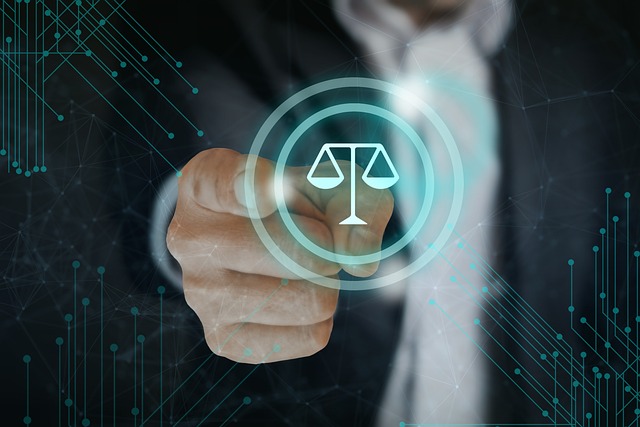Regulatory fraud laws are essential for maintaining integrity across industries, combating practices that distort markets and erode public trust. These laws address various fraudulent activities, with legal consequences extending beyond financial loss to environmental harm and unethical conduct. Understanding the legislative framework and evolving fraud schemes, especially in the digital age, is crucial. The effectiveness of these laws is maintained through continuous refinement by philanthropic and political communities addressing challenges like procedural errors, insufficient evidence, and law misinterpretations. In fraud cases, particularly white-collar crime involving complex financial transactions, understanding legal grounds for criminal appeal, including evidence admissibility, ineffective counsel, and procedural irregularities, is vital. Skilled defense attorneys leverage these complexities to achieve positive outcomes. Navigating the appeal process offers a chance to review case evidence and examine legal grounds, potentially securing a dismissal and ensuring fairness for the accused.
Regulatory fraud laws are critical components of our legal system, designed to protect against deceptive practices that undermine public trust and safety. This article delves into the intricacies of these laws, focusing on key aspects such as definitions, scope, legal grounds for criminal appeals, evidence requirements, and navigating the appeal process. Understanding these elements is essential for both legal professionals and individuals facing fraud charges, emphasizing the importance of robust legal representation and a thorough grasp of one’s rights, particularly in appealing criminal convictions based on alleged fraud.
- Understanding Regulatory Fraud Laws: Definitions and Scope
- Legal Grounds for Criminal Appeals in Fraud Cases
- Key Elements and Evidence Requirements for Fraud Charges
- Navigating the Appeal Process: Rights and Procedures
Understanding Regulatory Fraud Laws: Definitions and Scope

Regulatory fraud laws are a critical component of maintaining integrity within various industries and sectors. These laws are designed to safeguard against deceptive practices that undermine fair competition, distort markets, and erode public trust. Fraudulent activities covered under these regulations range from financial misreporting to false advertising, corruption, and the manipulation of data. Understanding regulatory fraud laws involves grasping the definitions and scope of what constitutes fraudulent behavior in a given legal jurisdiction.
The scope of regulatory fraud laws extends beyond mere financial loss; it encompasses harm to public safety, environmental degradation, and unethical conduct that undermines democratic processes. Legal grounds for criminal appeal in such cases are often centered around procedural errors, insufficient evidence, or misinterpretations of the law. Navigating these laws requires a deep understanding of not just the legislative framework but also the evolving nature of fraud schemes, which can be particularly challenging in today’s digital era where new forms of fraudulent activity emerge constantly. Involving both philanthropic and political communities, regulatory fraud laws are continually being refined to keep pace with these changes, ensuring that all stages of the investigative and enforcement process remain robust and effective.
Legal Grounds for Criminal Appeals in Fraud Cases

In fraud cases, understanding the legal grounds for criminal appeals is paramount. These appeals provide a mechanism for challenging convictions and sentences when there are perceived errors in the legal process. Key grounds often include issues with the admissibility of evidence, ineffective assistance of counsel, and procedural irregularities during trial. In the context of white-collar crime, where cases can be complex and involve intricate financial transactions, philanthropic and political communities may find themselves at the center of these appeals, as they are increasingly recognized as having a role in both preventing and addressing fraud.
For defendants facing legal grounds for criminal appeal, strategic decisions such as avoiding indictment through plea bargaining or negotiating terms can be part of a broader defense strategy. The white-collar defense approach emphasizes not just challenging the evidence but also understanding and leveraging the complexities of the legal system to achieve favorable outcomes. This includes navigating the nuances of regulatory fraud laws, which often require proving intent and sophisticated schemes, providing ample opportunities for skilled defense attorneys to advocate on behalf of their clients.
Key Elements and Evidence Requirements for Fraud Charges

When it comes to Regulatory Fraud Laws, understanding the key elements and evidence requirements is pivotal for navigating potential legal grounds for criminal appeal. To establish fraud charges, prosecutors must demonstrate several crucial components. Firstly, they need to prove an intentional misrepresentation or omission of material fact by the accused party. This could involve altering financial statements, misusing company assets, or lying to regulatory bodies. Secondly, there must be evidence of a deceptive scheme designed to deceive investors, stakeholders, or government agencies. The complexity of these schemes can vary, but they often include intricate web of false statements and illegal activities.
The strength of the case against an individual or respective business hinges on concrete evidence gathered during thorough investigations. This includes financial records, emails, contracts, and witness testimonies. An unprecedented track record of successful fraud cases can also be a compelling factor for defendants aiming to mount a criminal appeal. For his clients facing such charges, legal teams must meticulously scrutinize the facts, challenge the admissibility of evidence, and question the motivations behind the allegations to build a robust defense strategy based on the respective business’s actions and intentions.
Navigating the Appeal Process: Rights and Procedures

Navigating the appeal process is a crucial step for individuals facing regulatory fraud charges. Understanding one’s rights and following the proper procedures are essential to achieving a favorable outcome. Appeals offer an opportunity to review the case, examine legal grounds, and potentially secure a complete dismissal of all charges.
In cases of white-collar and economic crimes, the process involves carefully reviewing all stages of the investigative and enforcement process. This includes assessing the strength of evidence, evaluating procedural errors, and determining if any misconduct occurred during the initial proceedings. Knowing these legal avenues is vital to ensuring fairness and potentially securing justice for those accused.
In understanding and navigating regulatory fraud laws, it’s clear that the legal landscape surrounding criminal appeals in fraud cases is complex. Knowing the specific grounds for appeal and the evidence required is essential for a fair and just outcome. By familiarizing themselves with these aspects, individuals and organizations can better protect their rights while ensuring compliance with regulatory requirements. Effective navigation of the appeal process is crucial to resolving disputes and upholding integrity within various industries.






